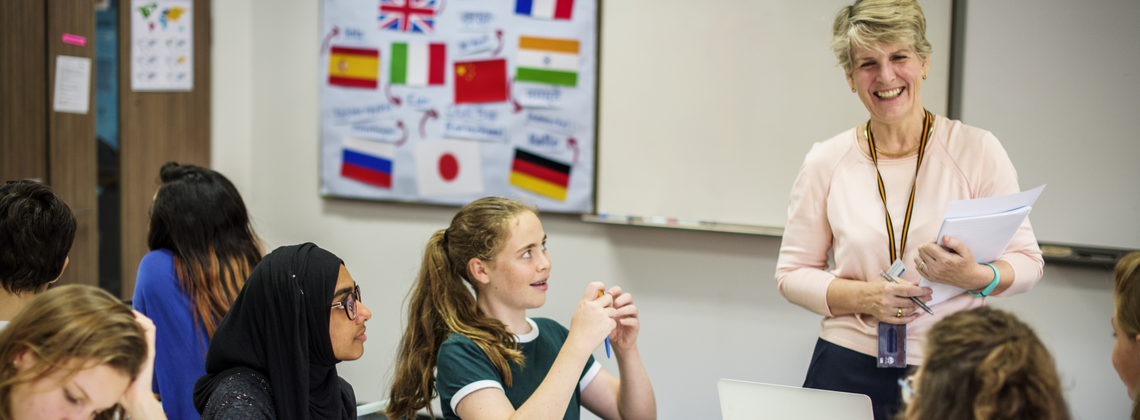

Language exchanges are great ways to connect with other learners and native speakers.
Today’s modern world allows us to set up a language exchange in many ways, both digitally and physically, from the basics, a language exchange is simply the organizing of two people who agree to get together to practice each other’s native language.
Learning through this method allows you to start learning from another partner, this one-to-one learning technique can help fuel not only the language progression but cultural learning too.
Online, offline

There are two ways to do a language exchange. Meeting in person is the traditional way to execute a language exchange, but there are now apps and online resources that allow us to communicate with the other person involved.
Many apps are very beneficial for learners looking to kick-start a language exchange as you can now connect using these services. Apps and websites allow us to connect digitally with the partner; this language exchange allows them to connect and learn both ways. How technology has advanced!
The physical meeting could be an option for those to improve their learning, meeting in a local coffee shop or traveling to stay at each other’s homes is another option (usually requires travel to the target country). Logistically finding someone for offline language learning in your local community is much more efficient however for effectiveness, the language exchange the other person’s country is a great way to get immersed.
Native speakers are great people to learn from to help advance your learning.
How to do a language exchange
A language exchange doesn’t have to be too intense.
You can set the intensity of the sessions you have with your partner, agreeing the pace of your learning, how often you meet and how you plan on reaching the end goal. The agreement between the two parties between online and offline resources allows you to work on improving your language skills.

So what needs to be organized?
- Plan your meeting location – make sure to meet somewhere public. If you don’t know this person, that’s a great way to meet in the middle group. Choose somewhere where you can talk, so no clubs or loud coffee shops. Try and find somewhere that you can both enjoy the food and drink. For the online meetings, meet when you are in a fixed place, trying to do a language lesson when you are trying to shop sounds productive, but we aren’t sure it works amazingly.
- Organize amount of time – When you meet, organizing the time that suits you both. You’ll have to respect each other’s schedules, so work around each other. When you find that spot for your first meeting agree on the number of hours you can spend together, it’ll help you define the intensity of the learning or even how often you will meet. Some people will meet a lot, between 3-5 hours a week, others will keep it to a 1hr session per week, or even every 2 weeks. It depends on your goals.
- Plan a schedule – Stay organized, use a calendar to plot all of the upcoming sessions you plan with your partner, the language exchange schedule will help you keep to plan with all of your targets and goals. This applies to all the online learners, but I’m sure your teacher will help organize a time and send you an invite.
- Plot an end goal for your learning – End goals are so important, this doesn’t mean the end of your meetings once you’ve hit that target, but it’ll give you a north star to focus on when you are learning and progressing. Plotting an end goal could be your way towards language fluency if you both target something similar. It’ll also help to guide the intensity of the sessions and even influence the schedule and amount of hours you put into the sessions, so worth chatting about before you meet.
Language exchange options
There are many resources that can help us connect with learners around the world or around the corner, here are a few recommendations when it comes to being able to connect with those partners. These are a range of websites, apps and local apps that will help you connect with a potential language exchange:

Websites
- iTalki – Find a teacher for a video or phone call, one of the most popular resources.
- Rype – Very similar to iTalki, allowing you to connect with native speakers, 24/7.
- Verbling – Provides language lessons from high-quality teachers with flashcards lessons.
It’s harder to build a language exchange on sites like these, as the teacher is usually paid. However, they are a very effective to help build the vocabulary, language, and grammar you need to speak in the target country.
Local area
- Eventbrite – meet up for a language learning meet-up in your area, just search “languages” or your target language with a 10-mile radius, normally they are free, but sometimes there are paid events.
- MeetUp – Again, another meetup application, not obvious from its name. Meet up with local people, normally for clubs and meetings, however effective for finding a group of learners around any language or topic. Perfect for language exchanges or meeting and making language exchange partners.
The benefits to meeting up for a language exchange locally will allow you the ability to meet regularly.
Apps
- HelloTalk – Providing a great way to message native speakers, this is the perfect language exchange option. There are features like translation and note saving function for capturing your learnings.
- Speaky – Similar to HelloTalk, Speaky provides a seamless way to chat around a language and teach each other some of the native languages. Both great options!
- Tandem – Yet another popular option for language exchange. Allowing you to speak with natives on the go.
All of these apps can be used alongside resources like flashcard apps that will help provide you the insights into language learning that you need, feel free to use it alongside FlashAcademy® for optimum language learning.
Again, do remember, that apps and websites tend to get busy, so make sure to establish a strong relationship with your language exchange partner or they could get poached by other learners.
Best practices

There are ways to enhance your language exchange once you get started. Here are a few tips to optimizing your exchange with your partner to help maximize the learning of each other’s languages.
- Friendly – make sure to keep your persona friendly. Your partner will be appreciative of this. Even online you’ll need to keep you attitude strong and avoid getting cross with the other person, as they give you feedback.
- Detect issues – Remember in dialogue, make sure to be upfront with the other person. It’ll help them to improve their language learning skills Simple interjections will help to eradicate any issues with their fluency, accent or anything else
- Busy periods – As mentioned before, apps get busy and so do our days. Make sure to keep cool when someone cancels on you. You never know how busy it’ll get during the day so understand that’s a negative to using language exchange apps.

